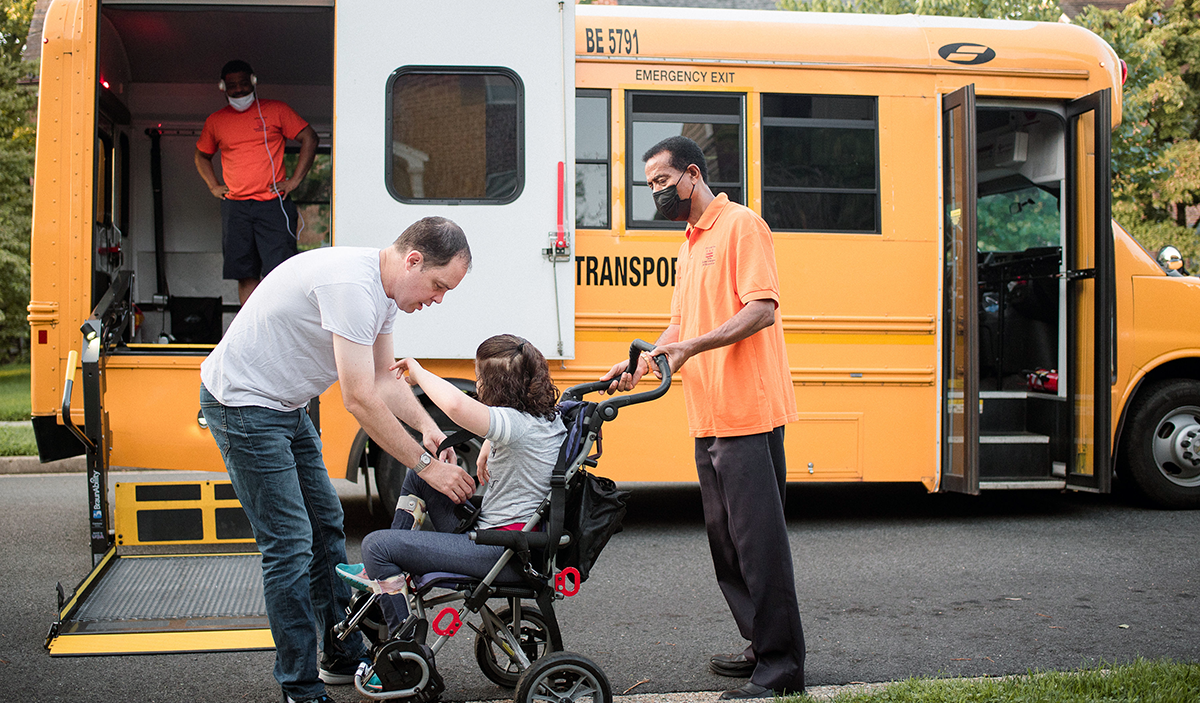The cost of raising a child with a disability in the United States is staggering. Parents of children with disabilities often face additional expenses for necessary costs such as medical care and educational support.
Even the cost of college tuition can seem minuscule when faced with needing to plan for a lifetime of care. By some estimates, the cost of raising a child with a disability can be up to $2.4 million. More than double the number of people with disabilities live in poverty than those without disabilities.
While these costs seem overwhelming, with smart financial planning parents can help make sure that their children are well cared for while they are young and well into adulthood. It is critical for parents to be thoughtful about how they save for their child’s care. Otherwise, they may inadvertently take actions that could limit their child’s access to support services and governmental programs now or later in life. Parents also need to plan to take care of themselves so they can best handle the emotional, physical, and financial needs that come along with raising a child with a disability.
Here are seven actions parents can take to reach the best position possible to care for their child with a disability for as long as possible.

Open an ABLE account
ABLE accounts allow people with qualifying disabilities to save money without jeopardizing access to services like Medicaid and Social Security. Parents, family, and friends can make contributions up to a combined $16,000 per year into a disabled child’s account. These tax-advantaged saving and investment accounts are not subject to federal income tax.
Funds can be used for qualifying expenses related to a child’s disability. Those include education, transportation, home modifications and direct support services. Think creatively about funding your child’s ABLE account. Consider putting $20 a month into an investment account if you are able and the account will grow over time. Family and friends may be willing to deposit a small amount into your child’s account instead of holiday gifts.

Set Up a Special Needs Trust
When a child with disabilities becomes an adult, they may be eligible for needs-based programs such as Supplemental Security Income (SSI) and Medicaid. However, these programs are means tested. That means if a person with disabilities has assets other than an ABLE account, they may not be able to access these programs because they are above the income threshold. They may need to spend down their assets to qualify.
A Special Needs Trust may be an option as the assets are owned by the trust rather than the person with disabilities. Even if the trust isn’t funded right away, it may be beneficial to establish one when your child is young. It’s a one-time expense that can be used for many different reasons. A trust can serve as beneficiary for a parent’s estate, life insurance policy or legal settlement. The best way to find out if this is a good option for your family is to speak to legal and financial professionals.

Save for Medical Expenses
Even children with excellent health insurance will encounter additional expenses. These costs may include frequent co-pays, durable medical equipment and prescriptions not covered by insurance, travel to obtain specialty care out of state and time off work to take a medically complex child to doctor’s appointments or to stay with them during a prolonged hospitalization. Just as some families put money aside each month to save for a vacation, families with a child with disabilities should be putting money aside regularly to cover these expenses. Consider setting aside a fixed amount each month, such as $50, to help make sure that the money is there when you have a big bill.

Budget for Respite Care
It’s important for caregivers to take care of themselves so they can continue to care for their children. This is especially true for parents of children with disabilities who have additional needs that at times can be emotionally and physically trying. Getting some rest and relaxation can be expensive, especially if a child requires specialized care. Saving to ensure that parents have access to respite, even if just for an afternoon a few times a year, is money well spent. Some families with children with similar disabilities trade caregiving services so that each can get a break cost-free. Another option is to ask a family member to pitch in with care.

Invest in Programs and Services for Your Child’s Future
Investing in a child’s future when they are young can pay off when they are older. In particular, programs that help children with disabilities gain more independence, furthers their access to education or could improve their mobility may have long term benefits.
Many interventions are most effective if started when children are young. Setting aside money for these programs is a good idea. Carefully evaluate any program, and check with your child’s doctor, to make sure you are making a wise investment. Some programs offer a sliding scale, scholarships or can bill services to insurance. Be sure to ask about these options before assuming you can’t afford something that might benefit your child.

Look for Government Resources
There are several programs for which children with disabilities may qualify for assistance. Two of the most common are Social Security Insurance (SSI) and Medicaid. You cannot make above a certain income level to receive this assistance. Many states also have Medicaid waiver programs that allow children to access Medicaid regardless of the parents’ income. These programs vary widely by state, and they may go by different names. Many programs cover expenses not typically covered by private insurance, including co-pays, diapers, specialty equipment and more. These programs are a lifeline for children with complex medical needs and disabilities. Because these programs are state-run, if you are not sure where to start, try calling your State Senator’s office or the Governor’s office for help. Some counties offer additional support programs, sometimes in the form of cash grants for eligible needs, so calling your city council member or other local representative may be helpful too.

Look at Non-Governmental Organizations
Check to see if your community has any non-profit organizations that run low or no cost respite programs, provide used durable medical equipment, or offer free or reduced-price services like speech therapy. Sometimes, the best way to find out about these programs is to network with other parents of children with disabilities. Ask your local children’s hospital or pediatrician’s office for leads. Search social media for other parents with children like your child and ask them what they have found helpful.
For more information on personal finance topics
If you have more questions about other personal finance topics that matter to you, visit the Learning Center on TD Bank’s website.
We hope you found this helpful. This article is based on information available in November 2022 and is subject to change. It is provided as a convenience and for general information purposes only. Our content is not intended to provide legal, tax, investment, or financial advice or to indicate that a particular TD Bank or third-party product or service is available or right for you.
For specific advice about your unique circumstances, consider talking with a qualified professional.
Links to third-party sites do not constitute an endorsement or an approval by TD Bank of any of the products, services or opinions of the corporation or organization or individual. TD Bank bears no responsibility for the accuracy, legality, or content of the external site or for that of subsequent links. Any third-party trademarks or service marks mentioned herein are the property of their respective owners. Contact the external site for answers to questions regarding its content. See our website Terms of Use for more information.
